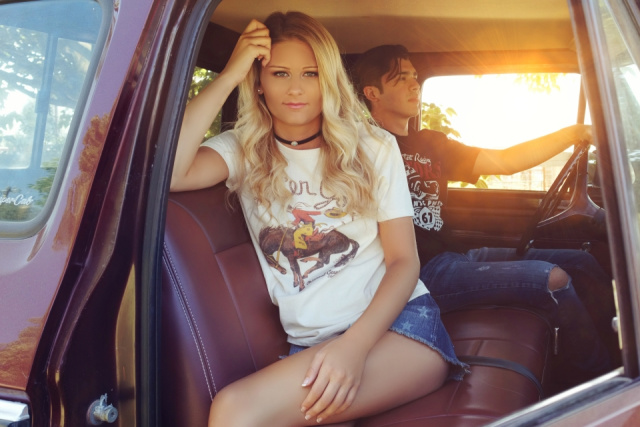
by Michael Satterfield
Authenticity is something the millennial consumer values, it’s something they strive for in their own lives. While it may seem contrary to the world of filtered photos and swipe right dating, authentic interactions, truth in advertising, and customer service are still important to this generation of consumer. It is a concept that many brands and marketing companies have failed to understand and adapt to.
Long gone are the days when brands could dictate their relationship with the consumer, which up until recently was a one-way conversation. Consumers are now able to interact with brands socially and they can tell a much larger audience about the brands they like and dislike.
Millennial’s unlike any other generation before them seek to feel connected to their world, their lifestyle, and their self-image. Their mobile device is both an extension of themselves and a window to the world. That window is powered by social media and a brand’s online image is more important than ever. When looking at a brand’s site and social media does it tell their story? Is that story authentic, credible, and verifiable? If not, it is time for a serious overhaul.
Tell the brand’s real story:
Not every brand was founded in 1899 and that’s ok, a brand can be inspired by heritage, a lifestyle, or time period without pretending to be something it’s not. Creating a made-up backstory is a surefire way to get called out and lose all credibility with customers. You might get away with it for awhile, but just wait until Reddit finds out. Instead of crafting a story about a phony founder, a fake legacy, or exotic locations that have no connection to the brand, you should be focusing on what the brand does well. Telling that story in an honest and relatable way will grow the brand’s fan base.
Believe me, telling consumers why an entrepreneur quit their job in 2014 to start their own bespoke bicycle company is much more compelling than creating a 100-year-old brand that is nothing more than a story.
Make sure your products/services reflect that story:
Authenticity is not just about telling customers the what and why of the brand, but how those products fit into that story. Are the products meeting the expectations and values of the brand’s story?
If the brand’s story is about creating the perfect handcrafted USA Made backpack for travelers, but the company has grown, and the backpacks are mass produced in China, it time to retell the story. Consumers are more concerned about the quality of the product and the facts that are used to sell them, than if the product is made overseas.
This does not mean that businesses cannot grow, expand into new areas, and change. They just have to make sure that the story evolves with the brand and reflects the values that the brand was founded on.
The community is key:
Millennials are all about community, they volunteer more, travel more, and are connected with community groups more than any previous generation. They are socially connected like no group in history, with friends both real and online that span the globe.
So if a brand plans on trading within a community… they need to be a part of it. Brands need to be engaged, involved, and supportive of the community. These groups are where companies will find brand evangelists and where the best feedback will come from.
Nothing will kill a brand faster than pretending to be part of a community simply because it is trendy. Members of that community will see right through any attempt to jump on a bandwagon and will likely reject the brand. Remember these groups is where brands will find the influencers that can make or break them.
The personality behind the brand:
Large corporate brands have to worry about this less, but if the brand is new, small, or more local, the people behind the brand, are the brand. The lifestyle, activities, an image of the person behind the brand needs be authentic to the values that the brand is promoting.
Living tied to a brand can be taxing, however, many consumers are not buying the product simply to fill a need. They are buying because they identify with and want to support the people behind the brand or the ideas which it stands for.
I have found that with many of my own brands I have become a major part of the brand. In some groups I’m known as The Gentleman Racer (from my popular website of the same name), to others I am known as the fashion designer, or photographer, or author. Each one of those groups connects me with the brands they have interacted with and they like knowing the person behind the brand.
Giving Back
This has to be the most authentic part of a brand story and values. This is tied to community and brand values. Doing good and giving back is important to millennials and they like to feel as if they are supporting companies that strive to make the world a better place.
Just writing checks does not really cut it anymore, they want to know that the people behind the brand care and are supporting the causes they claim. A brand that I am familiar with is suffering from this, the founder talks about international aid and his love for the environment as the core of his business model. Yet he has never been on an aid trip and is involved in litigation over the environmental damage he caused. It has had a significant impact on his brand locally and as it makes it way around the internet the repercussions might reach deeper.
Do good, document the good that is being done, share the good, not as a marketing tool, but as a way to encourage others to get involved. Even better host and support opportunities for consumers to give back while working with the brand.
Wrapping Up:
Building authenticity into a brand should be fairly simple if the company was founded by enthusiasts who love and understand the market they are serving. The brands I have founded all have deep roots in my own family, passions, hobbies, and experiences, the people I hire also have connections that allow them to relate to the brand story. So when someone interacts with myself or an employee at one of my companies, they are talking to someone who understands what the brand is about and why the brand was created.
Building an authentic brand allows us to relate to the clients who are most likely to be attracted to our products and services. Since we are connecting to them on a deeper more personal level, we have the opportunity to develop real relationships with our customers and service them better.






